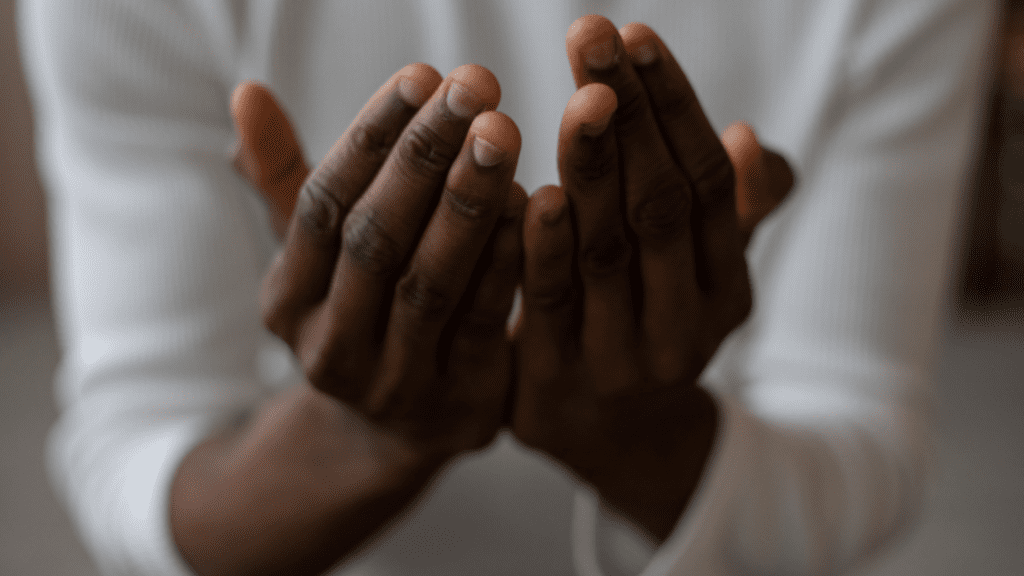Friendly Reminder: A Weekly Reflection from the Quaker Leadership Center
By Andy Stanton-Henry
I recently wrote an article for Friends Journal about the Quaker roots of the Vineyard movement and how that intersects with my own spiritual journey. I have many friends who identify as charismatic or Pentecostal and I spent a good deal of time in those circles as well. Some of what I experienced was troubling and I have sought to leave behind. Other things continue to prove meaningful and I wish I could experience more among Friends.
The primary founder of the Vineyard was a man named John Wimber. After converting to Christianity, Wimber’s life was transformed as he began attending an evangelical Friends church in Yorba Linda, California. One article in Christianity Today described Wimber as a “beer-guzzling, drug-abusing pop musician, who was converted at the age of 29 while chain-smoking his way through a Quaker-led Bible study.”
Wimber was warmly embraced in the church and eventually joined the pastoral team. The church grew exponentially. But he began having charismatic spiritual experiences that were beyond the bounds of what Quakers could embrace. He wanted to “do the stuff” Jesus did, as he recounts humorously in this video.
Even though they were “released” from their Friends membership, John and Carol Wimber continued to honor the Quaker roots of what became the Association of Vineyard Churches. And the Quaker influence remained. Their worship was more informal and communal. It centered on worship in the midst of Divine Presence. They insisted that God loves every person and communicates to them individually (speaks to their condition). In other words, as the fascinating book by anthropologist T.M. Luhrmann (after an in-depth study of Vineyard members & communities) put it, “God talks back.” They also maintained commitments to simplicity, peace, and the equality of men and women in ministry.
Above all, however, the Wimbers and the Vineyard leaders who followed them have maintained a focus on the Spirit. They have done this in a number of ways, but one of the most portable and powerful methods was in their stewardship of a simple three-word prayer: “Come, Holy Spirit.”
John Wimber (perhaps having learned it from controversial hippie preacher Lonnie Frisbee) would often begin times of ministry and healing prayer with those three words.
Unlike other charismatic preachers, Wimber didn’t do miracle crusades with lots of yelling and drama (though he did have to reckon with some wild manifestations in the infamous “Toronto Blessing”). He instilled a value of being “naturally supernatural.” When the time came for prayer, he would often pause for a few moments, and, with a gentle smile, speak “Come, Holy Spirit.” He knew the Spirit of God could do whatever the Spirit wanted to do without a lot of theatrics.
(It should be noted that neither Frisbee nor Wimber can copyright this prayer, of course. The wider, older Church has been praying what is called the “golden sequence” for a long time. Even in Latin: Veni, Sancte Spiritus.)
I can’t help but wonder what would happen if Quaker leaders of all kinds embraced this simple but powerful prayer.
What if we started every meeting for worship with that prayer? Whether spoken out loud from up front or silently in the sanctuary of our souls (why not both?), what would come alive?
The purpose of the three-word prayer is not as an incantation. It’s about setting an intention. And answering an Invitation with our own invitation.
Of course, the divine is always near and always active. But there is something special about giving enthusiastic consent to all God’s words and works. To let Spirit do and say whatever they want to do or say.
This a comforting invitation but also risky. If we welcome the “whole” Holy Spirit, whatever something happens that we are not used to or comfortable with. This type of risky and hopeful posture seems to be the one to which early Friends were committed.
I’m not trying to make the Society of Friends into some kind of evangelical Pentecostal movement. But I do think, if we are really seeking Life and Power, we should consider a few holy experiments.
Maybe God will talk back.
Maybe fresh winds of Spirit will blow.
Maybe we will be freed to yield to the Spirit of Holiness.
Maybe healing energies will flow from our movement.
Maybe new projects of justice and peace will emerge.
Maybe we will sing new songs.
Maybe none of those things will happen. But the only way we will know is if we try it out in the adventurous spirit of Fox (and Wimber) – “experimentally.”
So let’s experiment. All we need are three words and a spirit of welcome.
Come, Holy Spirit.
